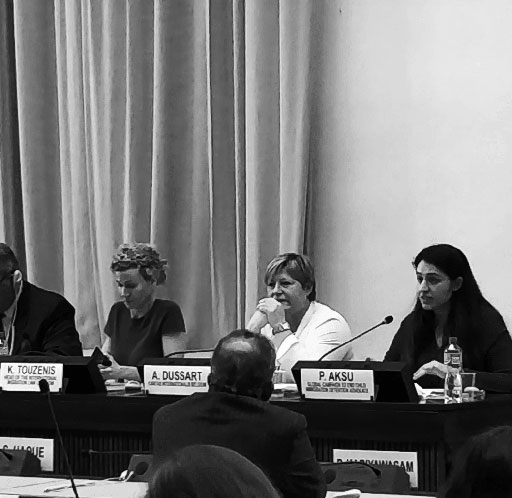IDC has worked to ensure that community-based alternatives to detention are at the heart of global and national debates on immigration governance.

Our focus is on alternatives that emphasize engagement with migrant communities, rather than enforcement actions. IDC and our partners have made huge strides in positioning alternatives as an essential element of how governments and international institutions talk about migration governance.
At a time of unprecedented political pressure to regulate migration, and powerful calls for mass detention, the growing momentum around alternatives is the most significant counter-trend to this rush to immigration enforcement. Alternatives to detention are achieving unprecedented prominence at the global level, with States coming together behind strong language in international agreements and texts, including the New York Declaration, the Global Compact on Migration and the European Commission’s Returns Handbook.
In 2018, the IDC played a key role in guiding the intergovernmental negotiations for the Global Compact on Migration, resulting in more than 160 States now committed to strong language on working to end child detention and developing alternatives. The IDC has continuously engaged in bilateral discussions with close to 30 State delegations in order to understand State concerns and ‘red line’ issues, explore potential compromise positions, and identify States that are willing to support our preferred positions.
In a major success, in May 2018 our suggested amendments to the immigration detention section of the Global Compact on Migration were fully adopted in the final text version of the Compact by the Co-Facilitators. The Compact was officially adopted in December 2018. The process brought us close working relationships with key States. These relationships will enable us to plan for the forthcoming implementation phase of the Compact, and ensure that commitments lead to national-level change.
The IDC’s expertise fosters close working relationships with a wide range of governments, providing technical advice and offering solutions to complex challenges of migration governance. Over the last three years, we have provided technical advice to 23 governments, including Botswana, Bulgaria, Canada, Cyprus, Ecuador, Greece, Indonesia, Israel, Japan, Korea, Libya, Kenya, Macedonia, Malawi, Malaysia, Mexico, Netherlands, New Zealand, Poland, Switzerland, Tanzania, Thailand, Turkey, Uganda, the United States, South Africa and Zambia. 110 government officials in total were trained, together with members across all regions.
The IDC has effectively transformed the international policy debate on immigration detention by reframing the little-discussed technical concept of “alternatives to detention” into a key focus for solutions-based advocacy in the migration sphere. The IDC is now able to work closely with international bodies, regional rights mechanisms, governments and civil society groups. Our sustained strategic collaboration with members and stakeholders has enabled us to mobilise a range of actors. Our research, models and evidence has allowed us to provide tools to build capacity of our partners, while conducting authoritative advocacy to government decision-makers.
There is a long journey between what is agreed to in the corridors of the UN, and the actions that will make a difference to the lives of people in immigration detention. Today, it is clear that alternatives to detention are now an established part of the international policy debate.
